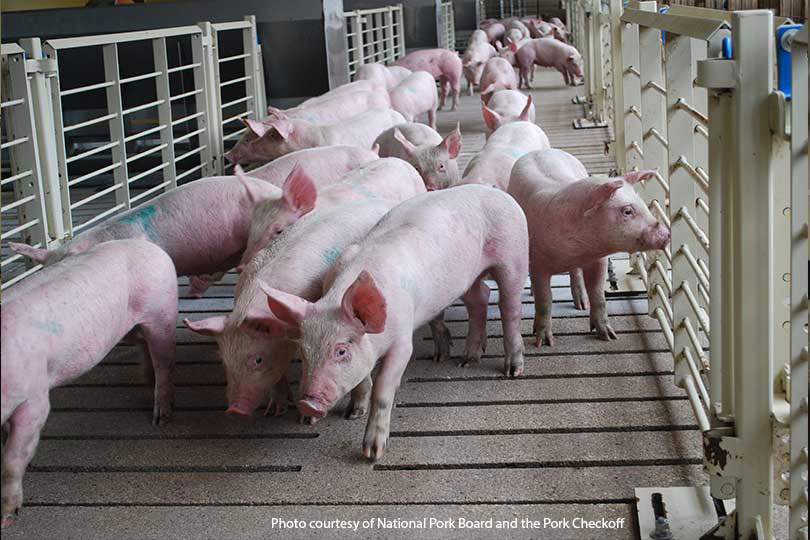By Jessica Domel
Multimedia Reporter
Imagine paying more than 50 percent more for your daily coffee, the shirt on your back or even a car. If you could purchase the same item, for 50 percent less from another seller, would you?
For most shoppers, it’s a no-brainer. And it’s a choice that buyers in the People’s Republic of China face now that the country has increased the tariffs it weighs on U.S.-raised pork from 62 to 72 percent.
“We are at a very non-competitive rate, and it’s an important issue for us to resolve,” Jim Monroe, assistant vice president of Communications for the National Pork Producers Council (NPPC), said in an interview with the Texas Farm Bureau Radio Network. “China right now is dealing with a considerable drop in domestic production due to African swine fever (ASF), and our producers are missing out on an historic sales opportunity because of the trade dispute.”
As of late August, more than 1.17 million pigs in China had been culled due to 154 ASF outbreaks in 32 provinces.
The highly-contagious hemorrhagic disease has led to a 32.2 percent reduction in the Chinese pig herd, according to officials there, who may be downplaying losses.
Industry estimates put the decline closer to 50 percent, according to Reuters.
China is the world’s largest pork producing and consuming nation.
Retaliatory tariffs of more than 50 percent mean the U.S. pork industry is missing out.
According to the U.S. Meat Export Federation, the additional tariffs effectively raise the cost of U.S. pork and variety meats by 45 percent compared to other exporters.
“There’s a significant demand in China for variety meats. That’s offal and other parts of the pig that just aren’t in demand in the United States but are high in demand in China,” Monroe said. “Not having favorable market access there prevents our farmers here in America from realizing the full value of each hog.”
China is complementary for U.S. pork producers because it is the biggest market for a variety of meats, Monroe added, and not having access to that market hurts the U.S. pork industry.
“We’re looking at, for the duration of this trade dispute with China, an $8 loss per hog for U.S. pork producers,” Monroe said. “That’s the equivalent of $1 billion on an annualized basis.”
NPPC is hopeful for a resolution with China that will allow pork producers to regain their market share.
“Pork producers, and most of U.S. agriculture, are highly dependent on exports. We’re big believers in free trade,” Monroe said. “You have seen exponential growth in the U.S. pork sector from free trade agreements.”
The U.S. exports more pork to the 20 countries it has free trade agreements with than to the rest of the world combined.
“So any time there is a trade dispute, we see it as a bad thing. It’s particularly bad when you’re talking about the largest pork-consuming nation in the world at a time when they’re seeking reliable sources of pork,” Monroe said.
There is no more reliable source of pork than the United States, according to NPPC, and all they want is the opportunity to compete on a level playing field.
“If we can do that, we usually do very well,” Monroe said.
Trade officials from the U.S. and China are expected to meet in Washington, D.C., later this month for mid-level talks and again next month for higher-level discussions.
According to Monroe, passage of the U.S.-Mexico-Canada Agreement would also help the U.S. pork industry, because it would preserve U.S. pork’s duty-free status in Mexico and Canada.
The bilateral trade agreement between the U.S. and Japan could also help pork raisers, depending on what is in the text of the final agreement.
“In principle, it’s great news,” Monroe said. “We’re hopeful to see that signed and implemented as quickly as possible.”
Japan is U.S. pork’s largest export market by value.
“Because of trade agreements Japan had formed and implemented earlier this year with European Union countries and with signatory nations of the new TPP-11 (Trans-Pacific Partnership) trade agreement, we were losing market share,” Monroe said. “So this agreement with Japan will get us back on a level playing field, and that is certainly good news.”
U.S. President Donald Trump and Japanese Prime Minister Shinzo Abe are expected to sign the trade agreement

